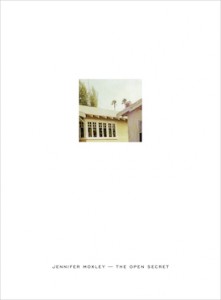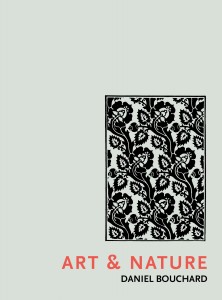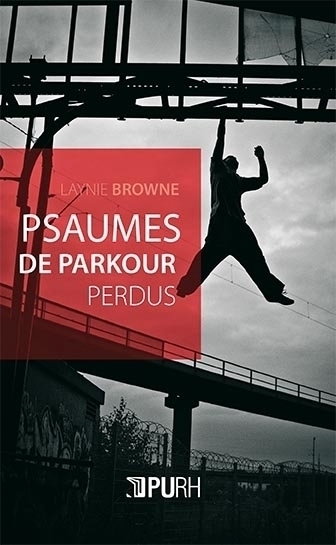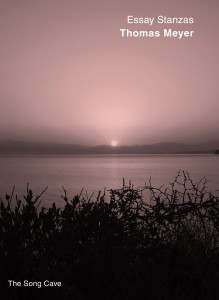By Dan Beachy-Quick, Poetry Book Review Editor, Colorado Review
 For as much as poetry concerns itself with the various forms of eternity—Keats’s “A thing of beauty is a joy forever,” Shakespeare’s “Not marble, nor the gilded monuments of time / Of princes, shall outlive this powerful rhyme”—the practice of poetry also initiates us into the ongoing fact of daily existence. A certain approach to poetry marvels the mundane. It takes those daily chores that seem to threaten a meaningful life and inverts the equation, so that doing the chores becomes its own sacred mediation.
For as much as poetry concerns itself with the various forms of eternity—Keats’s “A thing of beauty is a joy forever,” Shakespeare’s “Not marble, nor the gilded monuments of time / Of princes, shall outlive this powerful rhyme”—the practice of poetry also initiates us into the ongoing fact of daily existence. A certain approach to poetry marvels the mundane. It takes those daily chores that seem to threaten a meaningful life and inverts the equation, so that doing the chores becomes its own sacred mediation.
My past few months of reading have been graced by four such books, each of which I heartily recommend by its own merits, but also find myself convinced that taken together they offer a manifold experience of what gifts the tolling, toiling days bring forth. Jennifer Moxley’s The Open Secret (Flood Editions, 2014) does more than confirm her place among her generation’s finest poets, it signals a shift (that is a lesson in itself) away from “experiment” as a given avant-garde value in favor of a poetry that cannot assume the experimental gesture is the most honest one. It sounds pejorative, perhaps limiting, but it’s not—that this book marks the mind finding itself in the midst of middle age and seeking those experiences that sustain a life fully. “Coastal,” a long poem beginning with 9/11, is nothing short of a masterpiece, a kind of manifesto almost, if a masterpiece weren’t concerned with its own perfection (which it’s not), and a manifesto more interested in taking apart certainty than enforcing it (which here, thankfully, it is).
 Daniel Bouchard’s Art & Nature, his new chapbook from Ugly Duckling Presse, offers a similar sort of generosity to Moxley’s full-length collection. In lines of startling lyric precision and pleasure, Bouchard not only attends to “[t]he things we neglect to take for granted / blaze by new light in old places,” but with remarkable care and nuance writes of domesticities and other fleeting moments so charged by the day they mostly escape notice. His is a poetry of subtle praise, nowhere better seen then in “Poem Ending with Clotbur,” in which a peripatetic botanical catalog charts simultaneously the life of the philosophic mind:
Daniel Bouchard’s Art & Nature, his new chapbook from Ugly Duckling Presse, offers a similar sort of generosity to Moxley’s full-length collection. In lines of startling lyric precision and pleasure, Bouchard not only attends to “[t]he things we neglect to take for granted / blaze by new light in old places,” but with remarkable care and nuance writes of domesticities and other fleeting moments so charged by the day they mostly escape notice. His is a poetry of subtle praise, nowhere better seen then in “Poem Ending with Clotbur,” in which a peripatetic botanical catalog charts simultaneously the life of the philosophic mind:
Caterpillar grass whose bull briar
cockspur, bear and hedgehog mow
virgins bower goosegrass
cantilever and Kant
wild mustard woodbine must
gowan kedlock Plato
going to walk Gowanus canal
go on groundsel, grimsel
this ragwort in tatters
He proves again the day’s most profound if basic lesson: to perceive is the fundament of thought, and the very phonemes in which the verse revels are the grainy roots of metaphysical life.
 That shifting terrain in which the daily opens up the spiritual concerns it also undergirds are the lovely, necessary terrain of Laynie Browne’s recent collection, Lost Parkour Ps(alms) (Presses universitaires de Rouen et du Havre, 2014). Some of the poems make magic of daily ritual: “Do you have time for / a walk, a cup of tea / a blessing?” Others bring into vision realities harder to describe: “Find a way to inscribe the crumbling / walls of a body / of reverie.” What remains constant is that honest imbalance—that swerving of the heart into distraction, the mind going astray into thought—that mark our truest efforts at finding a center from which one can live a caring life. Browne has given us nothing less than a book of prayer and common advices—indeed, that advice that is a form of prayer and devotional practice:
That shifting terrain in which the daily opens up the spiritual concerns it also undergirds are the lovely, necessary terrain of Laynie Browne’s recent collection, Lost Parkour Ps(alms) (Presses universitaires de Rouen et du Havre, 2014). Some of the poems make magic of daily ritual: “Do you have time for / a walk, a cup of tea / a blessing?” Others bring into vision realities harder to describe: “Find a way to inscribe the crumbling / walls of a body / of reverie.” What remains constant is that honest imbalance—that swerving of the heart into distraction, the mind going astray into thought—that mark our truest efforts at finding a center from which one can live a caring life. Browne has given us nothing less than a book of prayer and common advices—indeed, that advice that is a form of prayer and devotional practice:
Spirit practice
Try making dinner
Be less tired when someone else is
Patience is not a clock
Listen paradox,
You speak through your eyes
Not those eyes
Forehead touches earth
To be faithful, so it seems, also means to get dirty. Not just the forehead against the earth, but the chores, the efforts at kindness, patience that doesn’t measure itself according merely to time.
 A life of such patience must have led to Thomas Meyer’s Essay Stanzas (The Song Cave, 2014). In long poems in which each stanza offers itself as a discrete meditation, Meyer creates a book in which the largest of universal truths find themselves manifest in the minutiae of daily attention. My favorite of the poems, “Caught Between,” opens the collection, is an exalted catalog of the things of existence—from light to ocean to river to tree to, most movingly, the animal kingdom—one that knows no list can be complete, and highest praise of the ten-thousand things must be modest enough not to strive to compete with the world of which it sings. Meyer renews poetry’s oldest dictate, placing upon his shoulders Caedmon’s own mantle: Now must we praise. Such praise isn’t a form of faith necessarily, not a religious tenet, but a kind of light, so that song brings to the eye what all there is that can be seen. To read such poems as these is to do so, as it is to share Meyer’s own condition:
A life of such patience must have led to Thomas Meyer’s Essay Stanzas (The Song Cave, 2014). In long poems in which each stanza offers itself as a discrete meditation, Meyer creates a book in which the largest of universal truths find themselves manifest in the minutiae of daily attention. My favorite of the poems, “Caught Between,” opens the collection, is an exalted catalog of the things of existence—from light to ocean to river to tree to, most movingly, the animal kingdom—one that knows no list can be complete, and highest praise of the ten-thousand things must be modest enough not to strive to compete with the world of which it sings. Meyer renews poetry’s oldest dictate, placing upon his shoulders Caedmon’s own mantle: Now must we praise. Such praise isn’t a form of faith necessarily, not a religious tenet, but a kind of light, so that song brings to the eye what all there is that can be seen. To read such poems as these is to do so, as it is to share Meyer’s own condition:
The trees nod. The wind
tells them secrets.
They agree. My heart
can’t help overhearing
what they say, and try as I might, I
can’t stop listening.